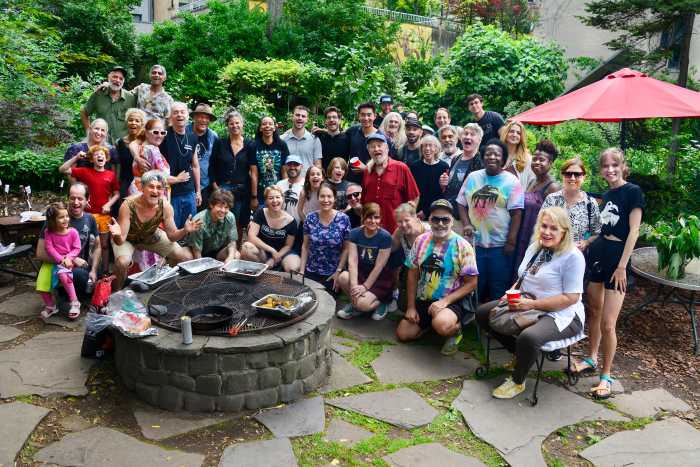By Andrei Codrescu
I met a reader who told me that I write much younger than I look. That kind of threw me because I rarely look at myself. Even if I did look at myself more often, I wouldn’t say, you look older so it’s time to adjust your writing to your looks. When I was very young I wrote much older. Some of the poetry I wrote at 19 could have been the work of an ancient Chinese sage. In any case, a writer’s inner and outer images rarely correspond. Some writers, just like some people, are born old, while others stay young and foolish to a ripe old age. I think that my reader may have meant something else, namely that I haven’t become more conservative with age, like most writers do if they are lucky enough to live past 50. If that’s the case, my reader has something.
At some point, the delights of rebellion pale because the things that seemed boring, stupid or evil in youth, like old people, stodgy instruction and malevolent institutions, seem to have some comforting virtues and might even provide safety for the tired rebel himself. There is an age of conversion, for writers and for people in general, when staying up all night takes too much energy and the glittery payoff of self-destructive joy becomes suddenly old hat. Dreaded middle age, settling down to the business of making a living, reproducing and upholding the values of society become all absorbing and one can hardly remember what was so great about talking till dawn with overstimulated strangers who grew black wings and moved about en pointe in crimson ballet shoes.
I was young in the 20th century when youth meant having the energy for combat upon seeing major (and blindingly obvious) structural flaws in the societal machine. Giving up in middle age for my generation meant either not having the energy to go on or, having won, going on to exercise power. It isn’t easy to stay in the opposition when the last two presidents were your age. For all that natural-seeming evolution, I don’t think that either the visions or the anger of my youth were wrong. What has changed is that in the 21st century it is no longer necessary to be young. Or middle aged. Or old. Or any age for that matter.
A person born in the U.S. today can, by plugging in the appropriate track(s), be any age he or she wants. Someone immersed in the multimedia distractions of a blog, a car-cum-office, i-Pod, computer, video-on-demand, 24-hour news and credit card debt, will hardly notice the irremediable passing of time. Or the peasants stroking their pitchforks outside. Today’s electronic media can cocoon one from cradle to grave, simulating every age. The trouble with all that simulation is that you pay for it with your youth. Your energy feeds the machine that keeps you cocooned. If I write younger than I look it’s because I still believe in life outside the surround. Unfortunately, this sentiment may sound as old as it looks. The machine defends itself by devaluing analysis. Or prose, anyway.
www.codrescu.com, www.corpse.org





































